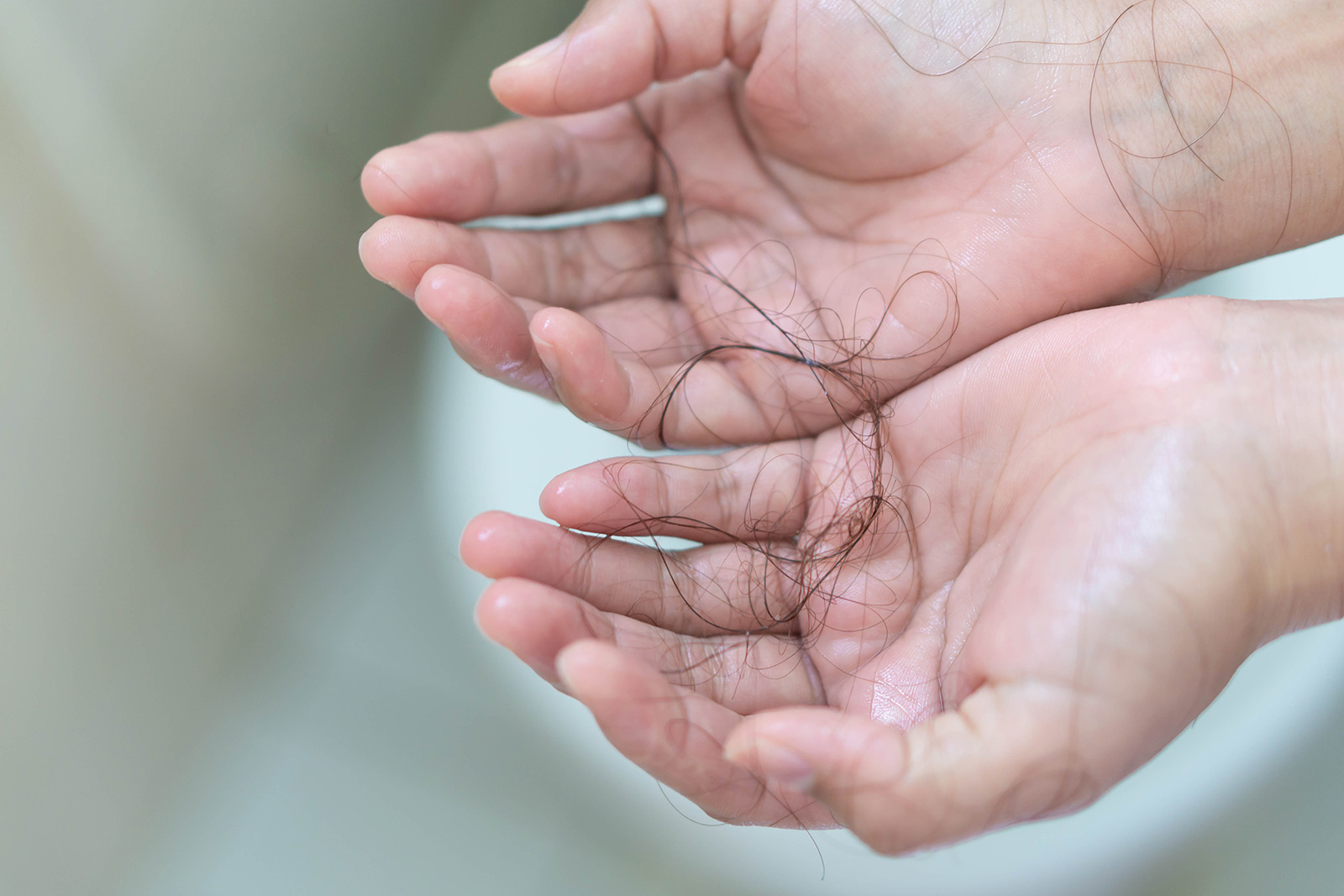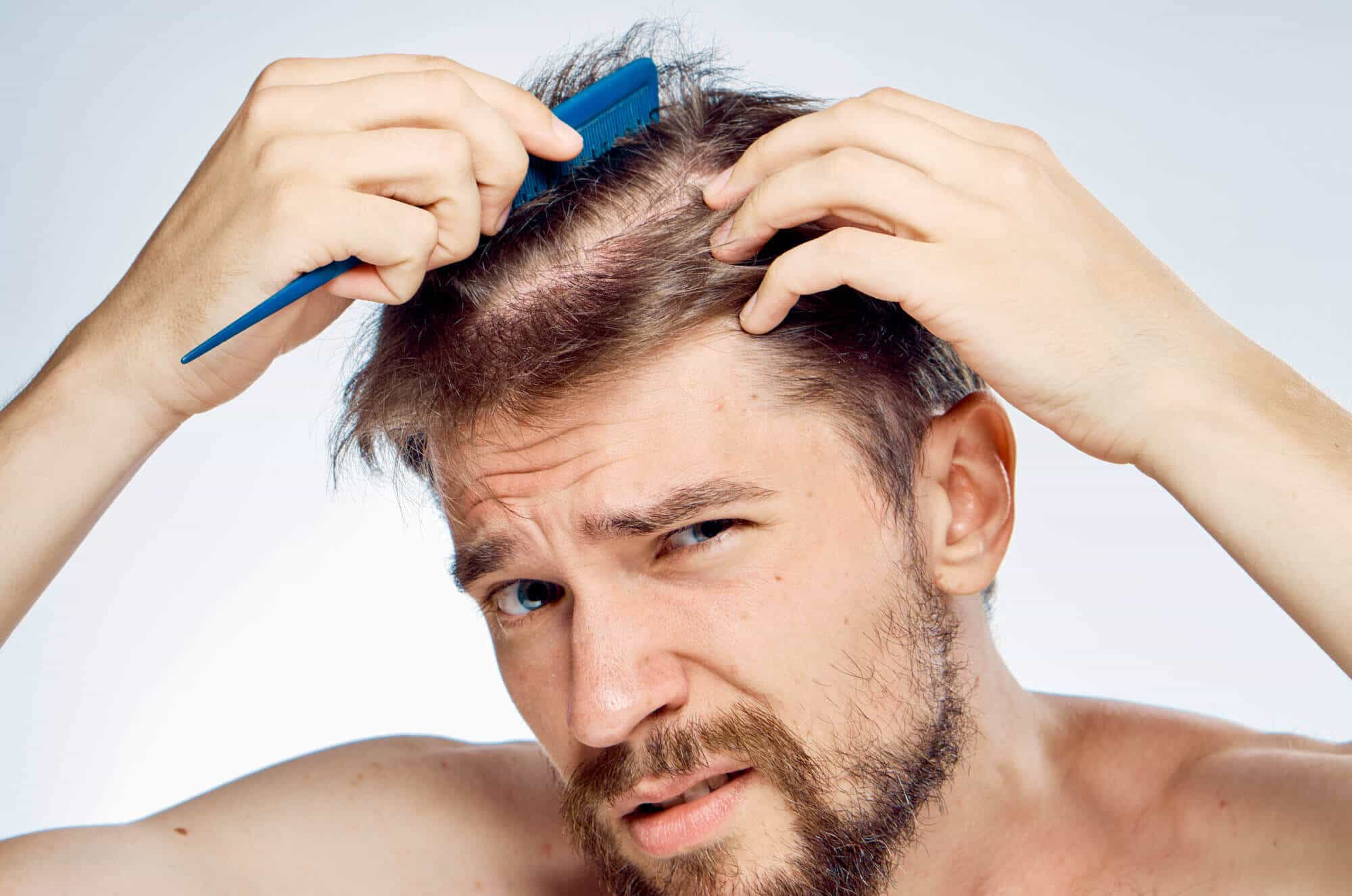Table Of Content
Others might experience hair loss several weeks or months after they stop taking birth control pills. Losing clumps of hair can be particularly distressing. But there will always be an underlying reason, whether it’s a health condition, stress levels, or family genetics. It can be hard to determine stress as the cause, as the hair loss often doesn’t occur immediately, instead falling out 3 to 6 months later. That said, if you find yourself losing clumps of hair several months after a big event like the ones mentioned above, it’s a good bet stress is the culprit. Some conditions can also lead to an imbalance, where half of the hairs on the head enter the shedding telogen phase.
15 Best Shampoos for Thinning Hair (Tests & Reviews 2024) - Cosmopolitan
15 Best Shampoos for Thinning Hair (Tests & Reviews .
Posted: Wed, 03 Apr 2024 07:00:00 GMT [source]
Other hair loss treatments
Here are some of the best treatments for female and male hair loss. CCCA and LPP fall under the umbrella of lymphocytic scarring alopecia. The telltale signs of these conditions are chronic inflammation of the scalp and the scarring of hair follicles, which can result in irreversible hair loss, Agbai notes. Understanding the underlying cause of your hair loss is absolutely necessary in determining the best approach to halt and reverse any further damage to your hair and scalp. You’ll notice if you start to lose weight quickly (typically defined as losing more than 5 percent of your weight in six months to a year). Your pants will be looser and, if you weigh yourself regularly, you’ll see the number on the scale go down.
What are some tips for dealing with hair loss?
About 10 million people in the United States are iron deficient, per one 2013 review of research, and it’s more common in women than men. Another red flag is a widening part, and the hair loss may be diffused, meaning it’s spread across the entire scalp. Your derm can examine the pattern of hair loss and perform blood work to rule out other causes, says Dr. Jakubowicz. However, this can change during menopause (more on that later) and some women with strong family histories of hair thinning or balding may still experience this.
16 Best Hair Growth Shampoos, Tested & Reviewed by Experts 2024 - ELLE
16 Best Hair Growth Shampoos, Tested & Reviewed by Experts 2024.
Posted: Fri, 19 Apr 2024 07:00:00 GMT [source]
You’re Going Through Menopause
They may ask whether any of your relatives have hair loss. You can have hair loss as a result of physical stress, like when you give birth or have surgery, or intense emotional stress, like a death in the family, divorce, or unemployment. Hair loss can happen a couple of weeks to 6 months after any stressful experience. A 2020 study tracked 79 women taking spironolactone daily (doses ranged from 25–200 mg) for a minimum of 6 months. Nearly two-thirds of participants experienced some kind of improvement after 1 year.
“Iron is an important mineral needed for development of our blood cells and healthy functioning of the body,” says Dr. Zeichner. Hair transplant surgery takes small pieces of the scalp with hair follicles on them and moves them to areas of baldness. A doctor or dermatologist will perform the surgery, and the patient is typically under local anesthesia. There are several reasons why you might be losing your hair. According to Agbai, genetics, hormonal shifts, stress, underlying medical conditions, nutritional deficiencies, and scalp inflammation are notable factors. Sometimes, large doses of stress can make your body’s immune system turn on itself and attack your hair follicles.
Certain medications have side effects that can cause hair to fall out. Always talk to a healthcare provider before discontinuing any medication. Telogen effluvium is common, seen more frequently in women, and usually happens two to three months after a triggering event. It typically doesn't last more than six months, but if it does, it's considered chronic. Hair loss caused by a medical condition usually stops or grows back once you've recovered.
How is hair loss diagnosed?

But it’s a sign that can take time to reveal itself. At any given moment, each hair on your head is at a different point of that cycle. If you receive chemotherapy or have radiation treatment to your head or neck, you may lose all (or most of) your hair within a few weeks of starting treatment. Free to everyone, these materials teach young people about common skin conditions, which can prevent misunderstanding and bullying. Stopping hair loss indefinitely depends upon the underlying cause. As a general rule, the sooner you treat hair loss, the more likely you will be able to reverse or reduce the rate of hair loss.
What other common types of hair loss are there?
A few months after giving birth, recovering from an illness, or having an operation, you may notice a lot more hairs in your brush or on your pillow. This can also happen after a stressful time in your life, such as a divorce or death of a loved one. In women, the first noticeable sign of hereditary hair loss is usually overall thinning or a widening part. Newer treatments that are also being explored include some forms of laser therapy, microneedling with PRP, as well as other oral medications.
A doctor or dermatologist can help determine what’s causing your hair loss and recommend a treatment plan based on your medical history and symptoms. Traction alopecia is a type of mechanical hair loss that happens when the hair follicles undergo repeated pulling or tension. Tight hairstyles like buns, braids, weaves, cornrows, and ponytails are the most common cause of traction alopecia.
Androgenetic alopecia is also called female or male-pattern baldness. This is a common type of hair loss that causes hair to fall out in a well-defined pattern, often beginning above the temples. Men often experience thinning of the hair on the crown of their head, as well as a receding hairline, though some men will eventually go completely bald. Women often see their hair loss as a thinning of their part and don’t typically lose hair from their front hairline.
Stay away from potentially aggravating ingredients, like alcohol, and drying heat tools. In a lot of cases, hair will grow back when you stop taking the medication. So what exactly is it that can lead to clumps of hair falling out? Well, there are plenty of potential culprits, and some people may have more than one issue at play. Maybe you even notice clumps of hair in the bristles of your brush after your daily brushing.

These styles tug on the hair roots, damaging the hair follicles over time. This is true for damaged hair follicles from too-tight hairstyles, damaged hair follicles from chemicals applied to the hair, and damages caused by certain autoimmune diseases. Female pattern baldness often results in thinning all over the scalp and might look like widening or thinning around the part. It typically occurs after age 65 but, for some females, it can begin early in their lives.
Once the hair follicle is permanently damaged, hair can not grow back. Female pattern baldness (androgenetic alopecia) is the most common cause of hair loss in women, but there are many other potential causes. A common cause of this imbalance is polycystic ovary syndrome (PCOS).
“Our body needs certain vitamins and nutrients to build hair,” notes Dr. Khetarpal. Illness can trigger hair loss, especially if it goes hand-in-hand with a high fever. “Any major shock to the body can cause you to start shedding two or three months later,” Dr. Khetarpal says. But it typically takes a major stressor, like divorce or the death of a loved one (a big work deadline or a blind date probably isn’t enough to make your strands say sayonara). People can develop hair loss where boots, socks, or tight clothing frequently rubs against their skin.
Tell them if your hair loss is affecting your wellbeing, and ask what treatments are available. We can lose between 50 and 100 hairs a day, often without noticing. According to the NHS, most forms of hair loss don’t need treatment. That’s because a lot of hair loss is either temporary or natural due to aging. You may also find that medications, like chemotherapy medications, retinoids, beta blockers, and antidepressants, can lead to hair loss.
Because hair is so closely identified with femininity, it can impact your self-esteem, make you feel depressed, and get in the way of your relationships with other people. Don’t assume you’re the only one going through this. In fact, it’s getting more and more common,” says Gary Goldenberg, M.D., assistant clinical professor of dermatology at the Icahn School of Medicine at Mount Sinai in New York City.

No comments:
Post a Comment